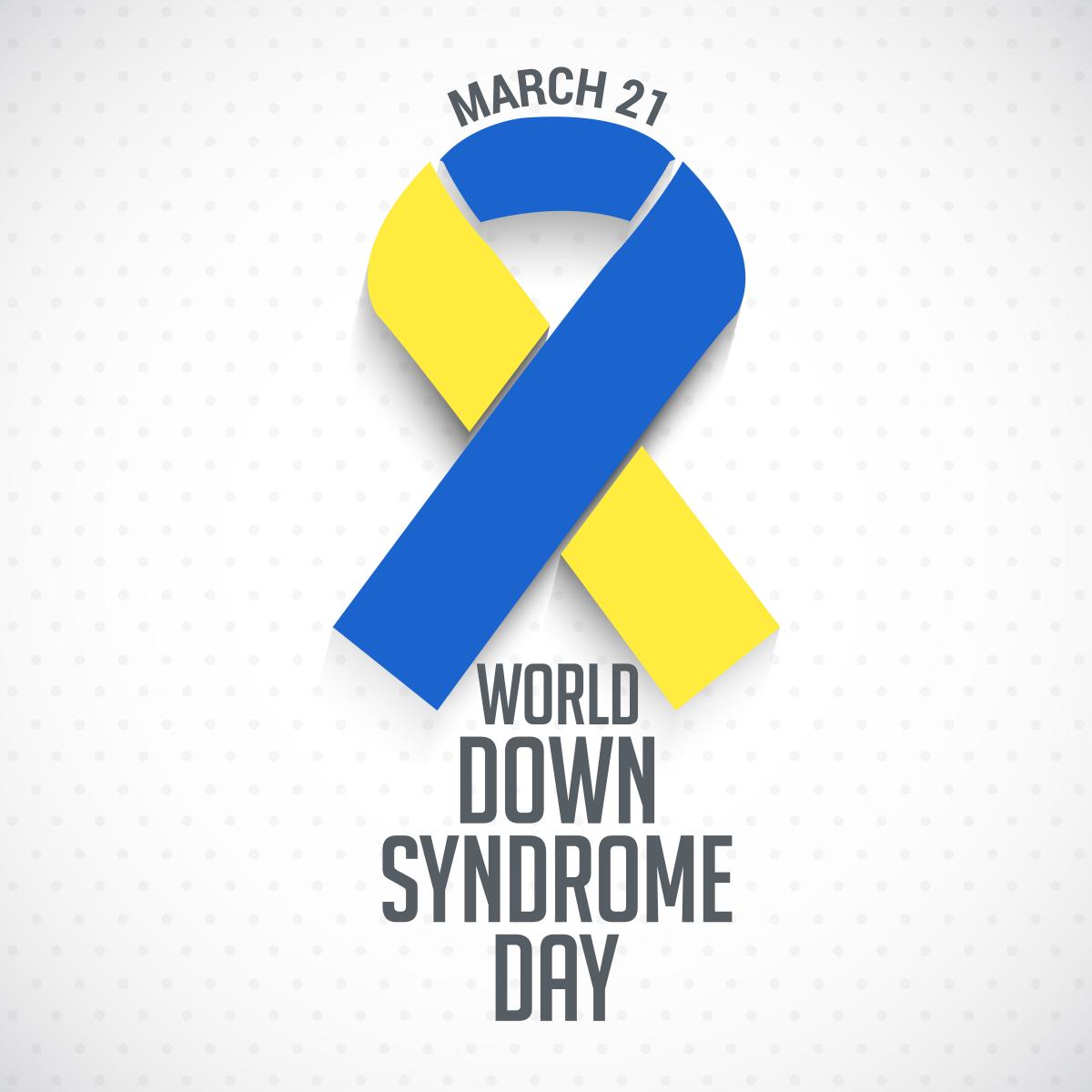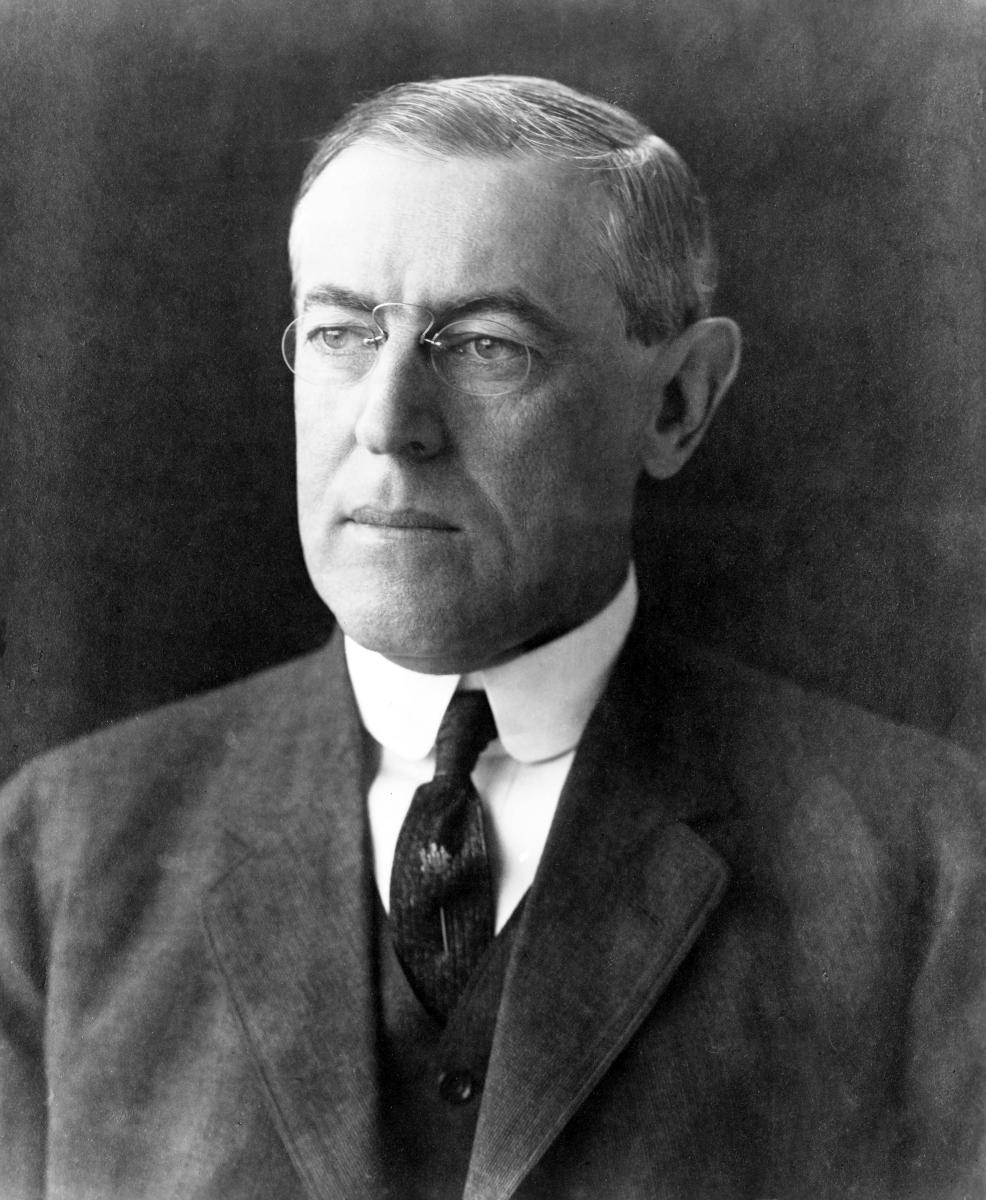Pioneering innovative therapies to improve the lives of those with genetic intellectual disabilities
You are here
Happy World Down Syndrome Day 2016!
Mon, 03/21/2016 - 10:24am — mbradford

 Today is a very special day for all those living with Down syndrome and for all those who love them. Today is World Down Syndrome Day, a day to celebrate the special gifts those living with Down syndrome bring to our human family. It is also a day to celebrate the progress made from a time when those living with Down syndrome were shunned, feared, and most often hidden away in bleak and often squalid institutions. So much has changed for the better, but there are still many challenges to overcome.
Today is a very special day for all those living with Down syndrome and for all those who love them. Today is World Down Syndrome Day, a day to celebrate the special gifts those living with Down syndrome bring to our human family. It is also a day to celebrate the progress made from a time when those living with Down syndrome were shunned, feared, and most often hidden away in bleak and often squalid institutions. So much has changed for the better, but there are still many challenges to overcome.
By coincidence, a new book was just published this month called Imbeciles: The Supreme Court, American Eugenics, and the Sterilization of Carrie Buck. This book by Adam Cohen has special significance today. It is a sobering reminder of the dark underbelly of the Progressive Movement in the United States, and its role in shaping America’s eugenic past – painfully enshrined in the 1927 Buck v Bell decision of the U.S. Supreme Court. You may know the phrase, “Three generations of imbeciles are enough”. That phrase was penned by Justice Oliver Wendell Holmes who represented the Court’s 8 – 1 majority that upheld the sterilization of Carrie Buck. They said that Carrie, her mother, and her daughter were “feeble minded” and “promiscuous,” and unworthy of bearing children!
 Some of America’s most revered names were among those who promoted eugenic sterilization. In 1911 as Governor of New Jersey, Woodrow Wilson, the 28th president of the United States, promoted and signed into law a statute that was, “AN ACT to authorize and provide for the sterilization of feeble-minded (including idiots, imbeciles and morons), epileptics, rapists, certain criminals and other defectives". Other notable progressives and progressive institutions behind the American eugenics movement were Margaret Sanger, the Carnegie Institution, the Rockefeller Foundation, J.H. Kellogg, Alexander Graham Bell, and even W.E.B. Du Bois, the Black American sociologist and civil rights activist who (incredibly) believed that, "only fit blacks should procreate to eradicate the race's heritage of moral iniquity”!
Some of America’s most revered names were among those who promoted eugenic sterilization. In 1911 as Governor of New Jersey, Woodrow Wilson, the 28th president of the United States, promoted and signed into law a statute that was, “AN ACT to authorize and provide for the sterilization of feeble-minded (including idiots, imbeciles and morons), epileptics, rapists, certain criminals and other defectives". Other notable progressives and progressive institutions behind the American eugenics movement were Margaret Sanger, the Carnegie Institution, the Rockefeller Foundation, J.H. Kellogg, Alexander Graham Bell, and even W.E.B. Du Bois, the Black American sociologist and civil rights activist who (incredibly) believed that, "only fit blacks should procreate to eradicate the race's heritage of moral iniquity”!
Yes, this is America’s past, but those familiar with the challenges facing the Down syndrome community in 2016 will hear the echo of this early 20th century eugenics movement still resonating in the current push to enhance and broaden access to genetic prenatal screening. We have managed to close down the inhumane institutions, institutions that were built by these early American eugenicists as places where they could lock away the “feeble minded,” like Carrie Buck, from society’s view. But, we have done that only to replace them with an aggressive effort to develop and promote genetic prenatal screening to ensure that fewer and fewer persons with intellectual disabilities are born at all. According to the newest market analysis (January 2016), prenatal testing, which includes cell-free DNA or so-called non-invasive prenatal screening tests, is expected to grow aggressively to a market value of over $10.5 billion by 2020!
If genetic prenatal screening tests could only offer some therapeutic benefit the story might be differenct, but they can't. Cell-free DNA screening tests are unique in that they are medical tests that provide no medical benefit. It can reasonably be argued, therefore, that their primary purpose is to identify babies with Down syndrome (and a growing list of other disabilities) so that their parents have to face a choice of whether or not to abort them. As the geneticist Harry Harris wrote in his 1974 book, Prenatal Diagnosis and Selective Abortion, prenatal diagnosis provided a new objective in medicine: “to find out whether the foetus has some defined abnormality which will inevitably lead to the birth of a defective infant and, if so, to abort (it)”. With this bald admission of its purpose, it is hard to see how prenatal diagnosis could be anything other than the reincarnation of a horrific eugenic effort to purge society of people that some see as undesirable, or, as Harris says, “defective”. From this perspective, prenatal diagnosis appears to be some bizarre form of human quality control. That attitude is what fueled the early 20th century American eugenics movement as well. So, how much has really changed?
 So, let's celebrate today, but during our celebrations not forget how fragile our community is in the face of this threat. Adam Cohen provides us with a chilling reminder of the work that lies before us. He points out the tragedy and shame in America's eugenic past, but the question asked should be how far we have truly come since Buck v Bell. We need to ask how we can overcome the inhumane attitudes that seem to dwell deeply within some that are at odds with what we celebrate today? Why do the majority of those who receive a positive prenatal diagnosis of Down syndrome experience such fear, or become convinced that the life of their child has less value than another because of the structure of its genome? Those who are unwilling to challenge the systematic identification and destruction of people they consider to be “defective” can’t possibly celebrate with authenticity the achievements and gifts of our loved ones with Down syndrome today.
So, let's celebrate today, but during our celebrations not forget how fragile our community is in the face of this threat. Adam Cohen provides us with a chilling reminder of the work that lies before us. He points out the tragedy and shame in America's eugenic past, but the question asked should be how far we have truly come since Buck v Bell. We need to ask how we can overcome the inhumane attitudes that seem to dwell deeply within some that are at odds with what we celebrate today? Why do the majority of those who receive a positive prenatal diagnosis of Down syndrome experience such fear, or become convinced that the life of their child has less value than another because of the structure of its genome? Those who are unwilling to challenge the systematic identification and destruction of people they consider to be “defective” can’t possibly celebrate with authenticity the achievements and gifts of our loved ones with Down syndrome today.
Noninvasive prenatal screening has been commercially available in the US since 2011 but is only now being considered in some countries of Europe. The Jerome Lejeune Foundation has joined with others to launch a campaign to draw attention to this threat by way of a petition that will be delivered to the United Nations earlier this year. Read about the program and sign the petition at www.StopDiscriminatingDown.com.
Great finds
- UK Casino Not On Gamstop
- Non Gamstop Casino Sites UK
- Best Non Gamstop Casinos
- Slots Not On Gamstop
- UK Casino Not On Gamstop
- UK Betting Sites Not On Gamstop
- UK Casino Not On Gamstop
- Non Gamstop Casino UK
- Online Casino Real Money
- Meilleur Casino En Ligne Francais
- Casino Sites Not On Gamstop
- Non Gamstop Casino Sites UK
- UK Online Casinos Not On Gamstop
- Non Gamstop UK Casinos
- Best Online Casinos UK
- Best Non Gamstop Casinos
- Non Gamstop Casinos
- Casino En Ligne
- Casino Sites Not On Gamstop
- Casino Sites Not On Gamstop
- Casino Not On Gamstop
- Gambling Sites Not On Gamstop
- Slot Soldi Veri Online
- Migliori Casino Online
- Meilleur Casino En Ligne France
- Casino En Ligne
- Sites De Paris Sportifs Belgique
- Casino En Ligne
- Meilleur Casino En Ligne Belgique
- Nuovi Siti Di Scommesse
- Paris Sportifs Crypto
- Fm 카지노
- Casino Nouveau En Ligne
- Casino En Ligne Avis
- Casino En Ligne Avis
- Nouveaux Casinos En Ligne 2026
- Casino Sicuri Non Aams
- 카지노코인
- ブック メーカー 日本 おすすめ





 RESEARCH
RESEARCH CARE
CARE ADVOCACY
ADVOCACY